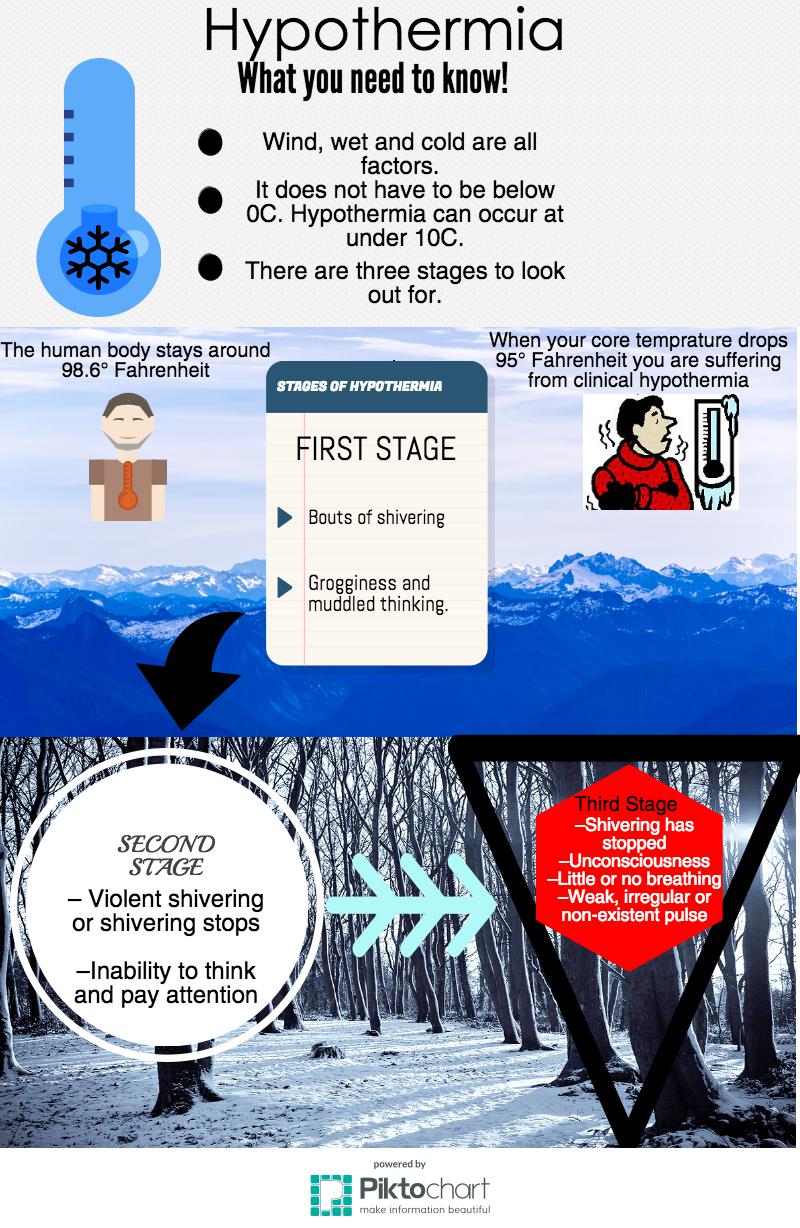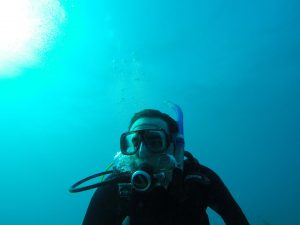Hypothermia and you: what to watch out for
BELLEVILLE – Hypothermia can be a serious issue in rural areas, especially those close to larger bodies of water, according to Quinte Conservation.
It’s commonly assumed that Canadians take to the colder weather with ease. But the cold can sometimes be fatal; cold weather contributes to 4.5 per cent of all deaths a year in Canada, according to a study published in the medical journal The Lancet in 2015.
Unlike animals, humans do not have an extra layer of fat or blubber to keep warm during the winter; they have to wear extra clothing and be more mindful about the temperature and windchill.
Hypothermia occurs when body temperature drops below 95F from the normal 98.6. If body temperature drops below 82.4 degrees, it can be fatal.

The risk of hypothermia is something Xhristo Priest of Peterborough, who’s been scuba diving for years, including in the winter, is well are of.
Priest said it shocks him to see people not dressed properly during the winter.
“When I walk around town and see people shivering – it makes you wonder if they think about their safety,” he told QNet News. “Most people aren’t even wearing hats or gloves when they’re shovelling their driveways. Your body is composed of blood vessels, and even when you aren’t under water, mild to extreme cold slows the circulation of your blood and reduces your external heat. That’s very bad for you.”

Canadian scuba diver Xhristo Priest at 20 feet deep in overseas waters. Photo courtesy of Xhristo Priest
Priest has participated in 36 dives all around Canada, including in Belleville and Bancroft, and in several overseas. For him, hypothermia is a more pressing risk then losing oxygen.
“I’ve done deep dives as far as 110 feet deep. The amount of cold you feel, even with a wetsuit, makes you feel like you could pass out and not even notice.”
One of the most important ways of protecting yourself from hypothermia is covering up, staying dry and keeping mindful of where you lose the most heat, which is your head, according to the Canada Safety Council.
People around larger bodies of water should be mindful as the weather shifts and the ice-covered waters start to melt, Quinte Conservation says.
@StevePappas10 Anyone who slips into cold, open water in the winter has a risk of getting hypothermia.
— Quinte Conservation (@quinteca) January 17, 2017
 Print This Post
Print This Post






